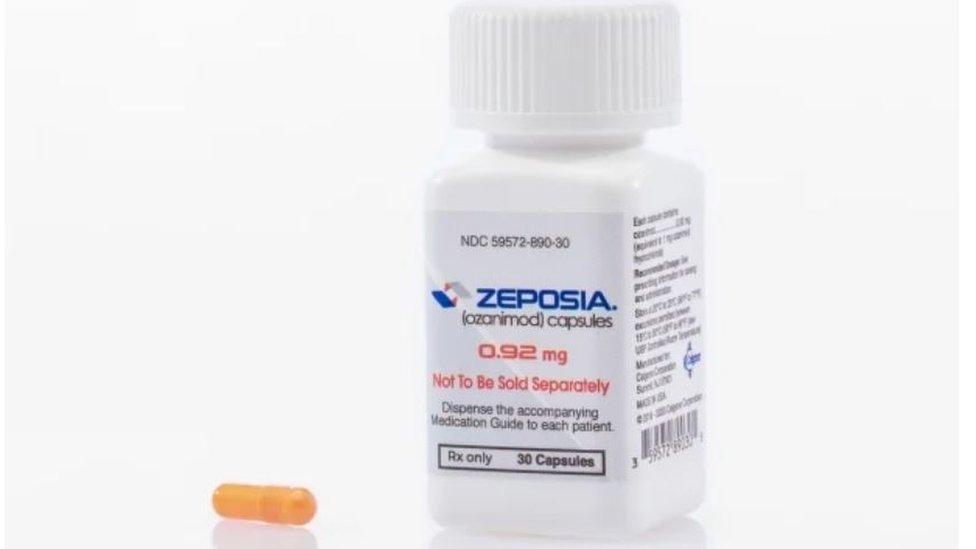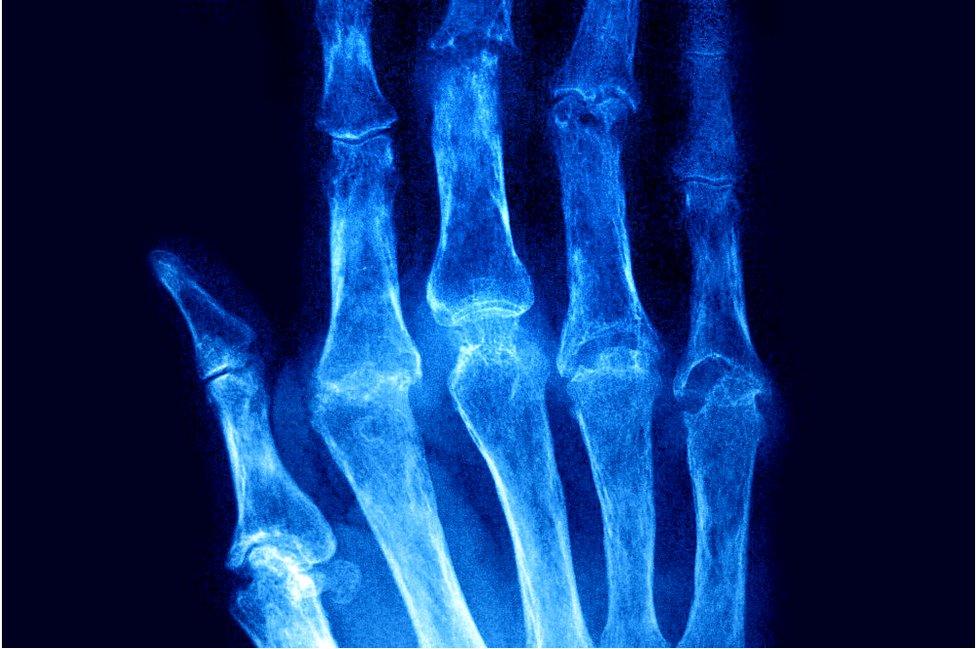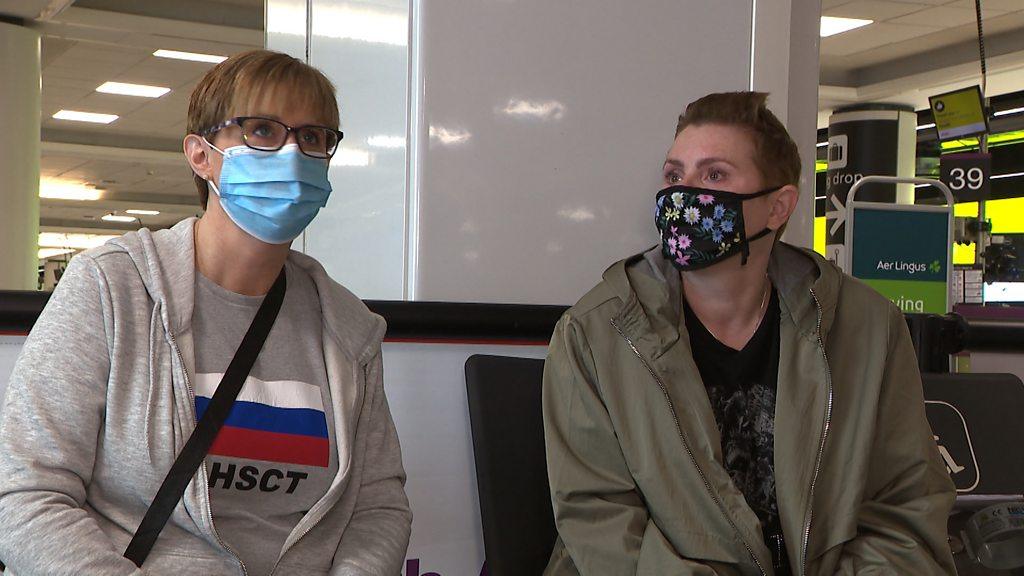Scotland first in UK to approve 'take at home' MS drug
- Published

Multiple sclerosis is a condition which can affect the brain and spinal cord resulting in some people needing to use a wheelchair
A new treatment for patients with multiple sclerosis has been approved by the Scottish Medicines Consortium (SMC).
Zeposia has been developed for adult patients with relapsing remitting MS, where the patient has flare-ups followed by periods of remission.
It is a treatment option which may reduce the need to have treatment administered in a clinical setting.
It is one of four drugs which have been newly-approved.
Ozanimod - Zeposia is manufactured by the company Bristol Myer Squibb. Taken orally once day it provides the advantage of being taken at home and avoiding clinical appointments during the coronavirus pandemic.
The manufacturer says the treatment is cost-effective and patients in Scotland will be the first in the UK to have access to it.
Scotland has one of the highest MS rates in the world with about 15,700 patients.

The treatments is taken orally, once a day
It is a condition caused by the body's own immune system attacking the nervous system, and affects the brain and spinal cord.
This can cause a range of symptoms including blurred vision, cognitive impairment, and difficulties with movement.
People with a rare condition called erythropoietic protoporphyria (EPP) will now be able to access the new drug Afamelanotide - Sceness which could allow them to spend more time outside.
It has become available through the ultra-orphan pathway, which supports access to medicines for extremely uncommon conditions.
People with the disease can suffer painful burns, swelling and scars due to exposure to strong light - leaving them incapacitated and affecting their work and family life.
There are currently limited treatment options for EPP and it is hoped the drug may provide an opportunity for patients to spend more time outdoors and to take part in activities.
'Benefit to patients'
Mark MacGregor, SMC chairman, said: "The committee is pleased to be able to accept these medicines for use by NHS Scotland.
"For those with EPP, afamelanotide may improve their symptoms, enabling them to spend more time outside.
"We know availability of this medicine will be welcomed and we hope it will provide some benefit to patients."
The drug will be available through NHS Scotland for three years while the pharmaceutical company gathers further data on the effects of the medicine.
SMC will then review the evidence and make a decision on routine availability through the health service.
Ravulizumab - Ultomiris - was accepted for the treatment of paroxysmal nocturnal haemoglobinuria (PNH), a potentially life-threatening condition in which red blood cells break apart prematurely.

Upadacitinib - Rinvoq can be used to treat severe rheumatoid arthritis
The committee also accepted upadacitinib - Rinvoq - for the treatment of severe rheumatoid arthritis that cannot be controlled well enough.
Mr MacGregor added: "In our PACE meeting for ravulizumab, patient groups and clinicians told us how the symptoms of PNH can have a significant impact on patients and their families.
"As ravulizumab requires intravenous infusion on an eight-weekly basis, it may allow patients to enjoy a better quality of life with fewer disruptions for treatment.
"For patients with relapsing-remitting MS, ozanimod offers another treatment with the benefit of oral delivery.
"Our decision on upadacitinib provides those with severe rheumatoid arthritis with another treatment option if they have not responded to current treatments."
Related topics
- Published17 June 2019

- Published15 September 2020
